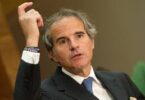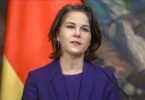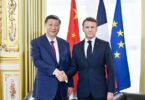According to Western media, the state heads of the four important Central European countries found some common ground on the Ukraine issue despite their governments’ diverging views on military support for Kiev’s fight against Russian invasion. The Czech Republic, Poland, Hungary, and Slovakia, all four post-communist EU states and NATO members form an informal alliance known as the Visegrad Group. According to Czech President Petr Pavel, the Visegrad leaders agreed that Ukraine must succeed but their priorities might be different vis-a-vis their national interests and EU collective policies and decisions.
Historically, the alliance has been led by Putin’s long standing ally and Hungary’s far-right Prime Minister Viktor Orbán, who refused to supply Ukraine with weapons and has threatened to veto EU financial aid packages to Kyiv. Orban accuses Ukraine of violating the rights of an ethnic Hungarian minority in western Ukraine by restricting use of the Hungarian language in schools. At the same time, Budapest’s far right leader upholds his loyalty with Russian President Voladimir Putin by tactfully subverting the leaders of important EU countries including against Ukraine, while putting the EU bloc into a troublesome and embarrassing situation.
Interestingly, Hungary, a permanent EU and NATO member state, played a unique role under Mr. Orban during the one and a half year long war in Ukraine. Budapest has not only blocked Western arms supplies from passing through its territory to reach Ukraine but deepened energy ties with Moscow despite EU’s strict sanctions on Russian oil and gas sectors.
Similarly, the Orban government resolutely opposes Ukraine’s addition into the European Union and recently formed a mini group within the European Union to sabotage their collective agenda against Moscow. Historically, there had been concerns among the EU member states regarding the monopoly of a few major nations and Brussels’ unnecessary involvement in the global disputes that cost significant financial burden to member nations. Meanwhile, the EU’s blind belief in Washington is another point of concern for various EU leaders at this point in time. In fact, the giant of Communism pushed European leaders into an alliance, whose absence is now pushing them toward disassociation. The analysts are mulling over the scenario of whether Hungary’s Viktor Orban would play the role of Gorbachev in the case of the European Union or not?







